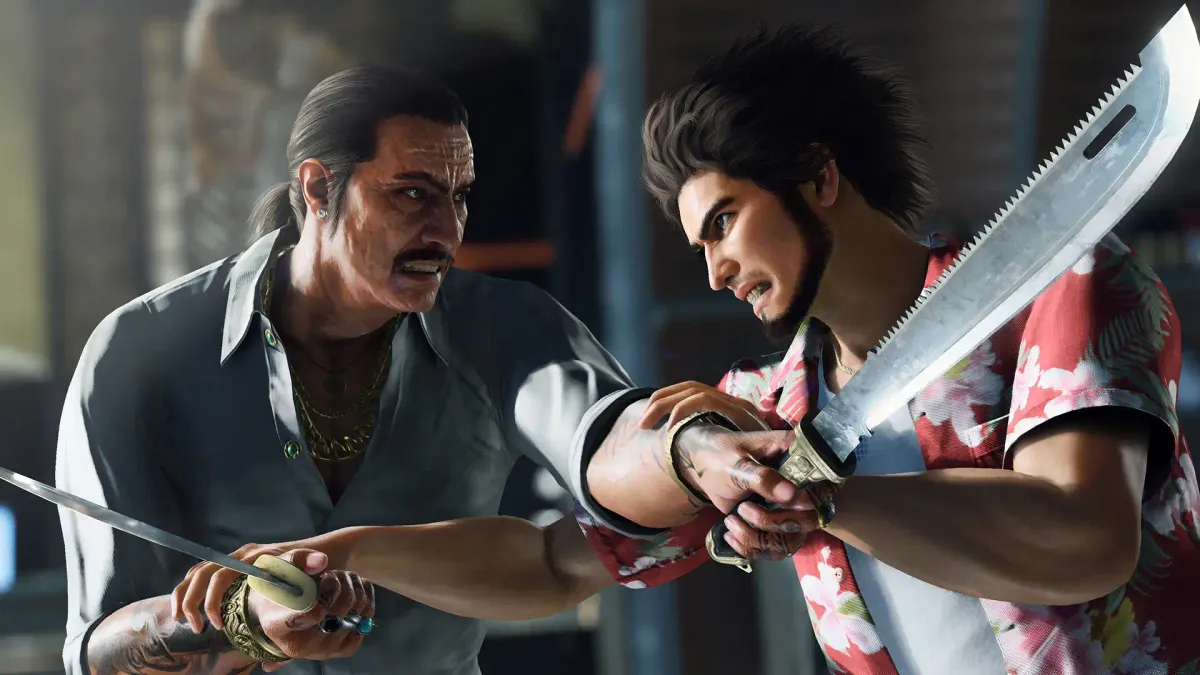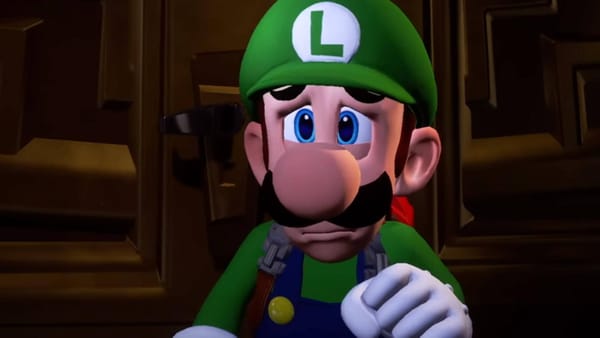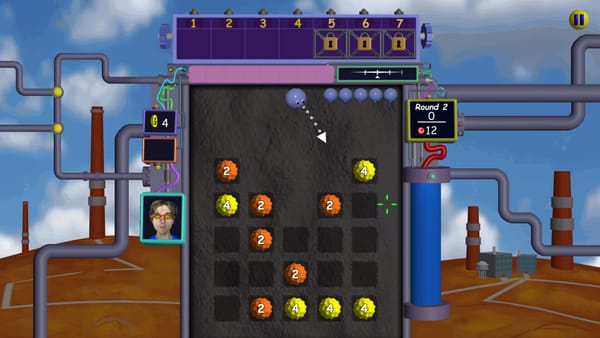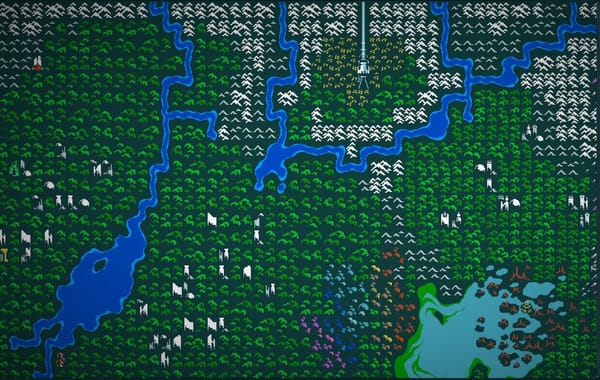Appreciate a Dragon Day
...or how I learned to stop caring and love the Dragons some more.

Life has caught up to me in a way. I’m still working on my big January piece. I went to Argentina on vacation. Then I came right back to the swing of things: work, studying for a certification, obligations, responsibility, general maintenance... It has left little time for gaming, let alone writing.
I bought a fun little 2024 calendar from my friends. I enjoy marking down important dates, game releases, and general mundane ephemera. January 16th reads “Appreciate a Dragon Day." Like a Dragon: Infinite Wealth, the latest release in my beloved Yakuza series, comes out on January 26th. It will be ten days until I can appreciate the real dragons again: Ichiban Kasuga and Kazuma Kiryu.
So, as a little amuse-bouche before the main course, I present to you the answer to the simple question: “Which Yakuza game should I start with if I want to play Infinite Wealth?”
Normally, I would simply smack the inquirer with an oversized cartoon mallet and state, “From the beginning!”. But when it comes to this series with such longevity and abundance, boasting 23 titles, I don’t think it’s that simple. The mainline entries alone require you to arduously marathon eight games. Should one start at the chronological beginning with 0? Or try the very dated and poorly aged PS2 Yakuza game, with an English dub so bad it’s become a meme in itself? Or perhaps its remake, Kiwami, revamped with the modern combat the Dragon Engine brought us?
At the end of the day, you can start with whatever you damn like—each Yakuza game has its own self-contained story. The problem is the constant references to events in games past, which, while not significant to the overarching plot, make certain story moments lose weight or impact. A series fan can recognize Yuya in 6 and be surprised that the former host has sparkled himself clean and is now working a normal office job, but a newcomer will just be scratching their head and thinking, “Who is this guy?”.
I would instead retort with another question: “What do you prefer: third-person combo-brawling or turn-based combat?”. The answer to that question dictates whether I lead you to Yakuza 0 or Yakuza: Like a Dragon. For better or worse, these are the real standouts of the series. These are the ones I love the most (but don’t tell the others).

Yakuza 0 is a great starting point because it’s the earliest in the timeline, set in the late 80s, but was the sixth installment release-wise. The series had at that point solidified its identity as a melodramatic, bicycle-smashing, high-octane-packing crime drama, but the writing matured as the series dragged on. As a result, 0 packs one of the best, most grounded stories of the Like a Dragon games. A story about the coming of age of two young men who have chosen the criminal life—how they clash against the superficial affluence and economic amorality of their surroundings. It had the advantage of having to set up a story devoid of overt references to its other entries. This is when Yakuza went balls out, and 0 remains, to this day, the most action-packed game in the series.
It does a great job at introducing the personalities of the two playable characters and series mainstays through story and gameplay. Kiryu’s combos are wilder and more beast-like; his fighting style is unrefined and unpolished, but the man can still punch with brutality in his early 20s. This speaks to him being less hardened, not as stoic or in control of his emotions as his older self. He is, at the end of the day, just a street kid trying to regain his path in the Yakuza world, ignorant of the legend he will soon become. Goro Majima is the opposite: he is holding back his inner demon in a bid to rejoin the clan from which he was exiled. He has already made a name for himself as the Mad Dog of Shimano, a fierce fighter and ruthless gangster. When he cracks spines and necks, you can see hints of a malignant smile. He’s multifaceted—as much as he craves a good fight and a proper ruckus, he is conflicted about lethal violence and prefers to spare his foes rather than resort to murder.
It’s a game oozing with style. Yen bills and coins, emblems of the Japanese bubble, fly off your enemies as you rattle them with kicks and blows, bolstered by a rocking soundtrack of fast guitar riffs and synthesized plucks. The neon signs and streets of Kamurocho are seedier, not yet gentrified; new players get to experience the red-light district grow and change, while veteran players get the joy of rediscovering their favorite streets from a previous time period. At the end of the first major dungeon, Kiryu dropkicks a guy out of a window. This is A+ stuff here! If the Yakuza series has any chance to enchant and enthrall newcomers, it’s with 0.

Yakuza: Like a Dragon is a different, equally valid starting point. If you like JRPGs or are open to the idea of party-style, turn-based action, this is your cup of tea. It also had the huge benefit of starting a new chapter of the Like a Dragon series, so it lacks callbacks and instead focuses on introducing new characters and fleshing out the new map, Yokohama’s Ijincho district.
Ichiban is quite possibly my favorite Yakuza protagonist. His childish, more emotionally bombastic personality bleeds into the turn-based gameplay. You see, young Kasuga lived a hard life, finding solace not only in the soapland community that raised him but in videogames, specifically the Dragon Quest series. He sees himself as the armor-clad protagonist of his own JRPG, giving any enemy a chance to land a blow on him as “a hero would." His vivid imagination plays a vital role in enemy encounters: instead of Yakuza grunts and street goons, he visualizes himself fighting mind-controlled freaks, goombas clad in garbage bags, and flashers wearing nothing but leather overcoats. His fists and kicks are re-imagined as special RPG moves.
The wackiness is all the more present as a result: from fire-breathing to summoning a giant laser beam from space, there is no shortage of vivid and wild attacks. I found extreme joy in unlocking new abilities and seeing what comedic cutscenes would play as a result. The one that flashed in my head as I was writing this was Essence of Hell’s Wheel, which Adachi, one of your main companions, can perform. He turns himself and a grabbed enemy into a wheel that spins at ultra-fast speeds; sparks emanate as he accelerates rapidly, and he knocks another group of villains to the ground, causing massive damage.
In the question of “What should I play before Infinite Wealth?” it’s the more obvious answer, as the upcoming installment still focuses on Ichiban. While I have no doubt it will have its own self-contained story, the addition of Kiryu as a secondary playable character concerns me, as the mountain of references to previous installments might be insurmountable for new players. I will only be able to tell once I get my sweaty, needy hands on Like A Dragon: Infinite Wealth.






